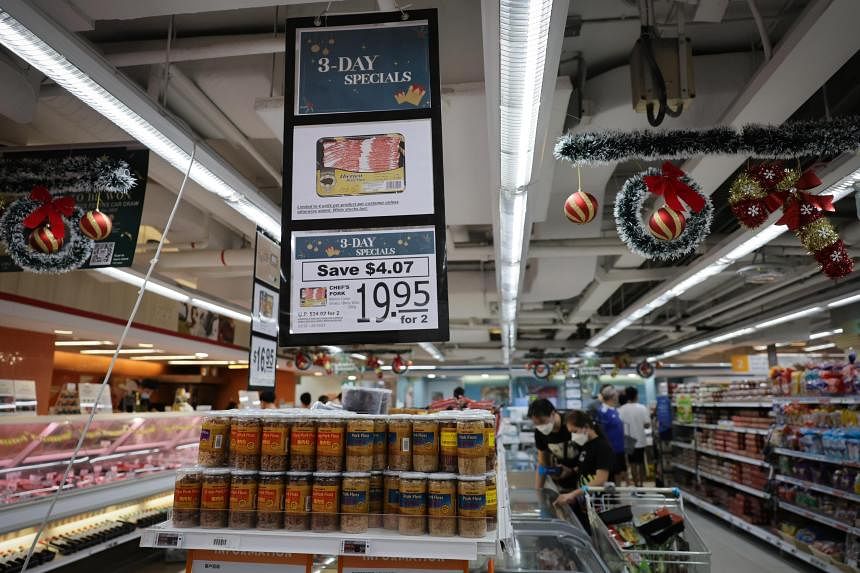SINGAPORE - Singapore’s cooperatives will be able to use their reserves to pay dividends and honoraria under proposed changes to an Act that governs their operations.
Currently, they are not allowed to touch the reserves. If the changes are passed, co-ops will be permitted to use their reserves to distribute dividends to members or pay an honorarium to members of the committee of management.
These payments will be subject to the Registrar of Co-operative Societies’ approval. The Registrar will, for example, assess whether the dividend and honorarium rates proposed are reasonable, and co-ops are maintaining a sufficient capital buffer for their long-term viability.
The amendments to the Co-operative Societies Act are likely to be read a second time in Parliament in early April.
Worldwide, the cooperative model as a way of doing business has been around for more than a century.
In the Netherlands, Rabobank, which was founded by farmers, says being a co-op allows it “to exert a more positive influence on people, nature and society”.
Sunkist is an agricultural co-op entirely owned by and operated for the California and Arizona citrus growers who make up its membership.
In Singapore, there are 79 co-ops serving some 900,000 members, according to the co-op collective body, the Singapore National Co-operative Federation (SNCF).
The most familiar among them would be NTUC FairPrice Co-operative, which operates the supermarkets that dot the island.
SNCF chief executive Ang Hin Kee noted that being able to tap the reserves is a welcome amendment. “With the markets being more volatile, in a certain year, revenue earned by co-ops may be lower, which limits how much they can pay out to members. With this change, payouts to members will be more stable, and will also be useful as costs of living rise.”
Mr Sanjeev Tiwari, CEO of AUPE Credit Co-operative (ACC), said: “For example, during Covid-19, things might have been slower for a particular cooperative. However, they may have built up good reserves over the years but are not allowed to pay out any dividends. This means they can’t help their members even though they have the funds.”
Being able to pay an honorarium and allowance is another positive move, said Mr Tiwari. An honorarium is paid for services rendered, whereas an allowance is meant to cover expenses incurred. “Sometimes you want to pay for the additional work that staff had to do, but we could not make that gesture of recognition.”
Industry players welcome the proposed flexibility, but some would like even more leeway in how they manage their finances as they face the challenge of remaining relevant amid competition.
Mr Ang said: “The new legislation states that any request for the use of the reserves requires the approval of the Registrar. This oversight is still useful but there should be recognition for co-ops with better fiduciary governance. A one-size-fits-all approach to the co-ops may not be the most appropriate as it could be just as restrictive.”
What do co-ops do?
Mr Ang said: “Not many people are aware that there are co-ops for medical general practitioners and retailers, for example, in addition to existing communities who are served in the areas of thrift and loan services or acquiring knowledge and skills training for caregivers.”
Co-ops are divided into two categories.
Consumer and services co-ops provide goods and services to their members and the public. They are driven by a social mission to help residents in Singapore by moderating the cost of living or providing targeted services.
Credit co-ops that provide financial services to their members who belong to the same employer or profession form the second category.
Credit co-ops are set up to provide members with thrift and loan services as credit facilities from banks and financial institutions might come with higher interest and other charges. Co-ops were a way of supporting members when they needed extra funds during the festive season or when they faced personal or medical emergencies.
Members can usually get slightly more favourable loan terms from their co-ops than from an external financial institution. For some members with lower incomes or poor credit history such that banks may deny them financing, their co-op will be more familiar with their employment history and be more willing to offer a financing alternative.
However, co-ops face tougher rules and strict limits – legislated many years ago – on how much they can lend, compared with financial institutions. This may mean that a member who needs money, say, for a renovation loan, might not be able to get the full amount required due to the limits set. Hence, having greater flexibility in terms of higher loan limits would be helpful.
“We want to be of value to our members and this is one way where we can continue to look after them effectively,” said Mr Tiwari. ACC has about 18,000 members.
Another bugbear – credit co-ops are currently restricted from advertising their loans, which means that members are often not aware of the services that are available.
Balance between commercial and charitable objectives
Mr Ang noted that there are many social enterprises these days which may have similar aims, but whose structure could be one of a company or foundation or charity. A co-op structure is another option that offers regulatory oversight.
The first co-op in Singapore – Singapore Government Staff Credit Co-Operative Society – was registered in 1925. Nearly a century on, Mr Ang reckons co-ops achieve a good balance between the commercial and charity objectives. A commercial organisation may do good but it is ultimately profit-driven, while a charity organisation has to expend efforts on raising funds.
A co-op exists to do business but the returns on its business are passed back to members in the form of dividends and other interest payments, Mr Ang added.
Globally, the top 300 co-ops and mutuals reported a total turnover of more than US$2.4 trillion (S$3.2 trillion), based on 2021 financial data, according to the World Cooperative Monitor.


